Coronavirus: China offers hope that an end to the coronavirus crisis may be in sight
On Tuesday, 76 days after it became the most infamous city in the world, Wuhan’s long coronavirus quarantine will finally end.
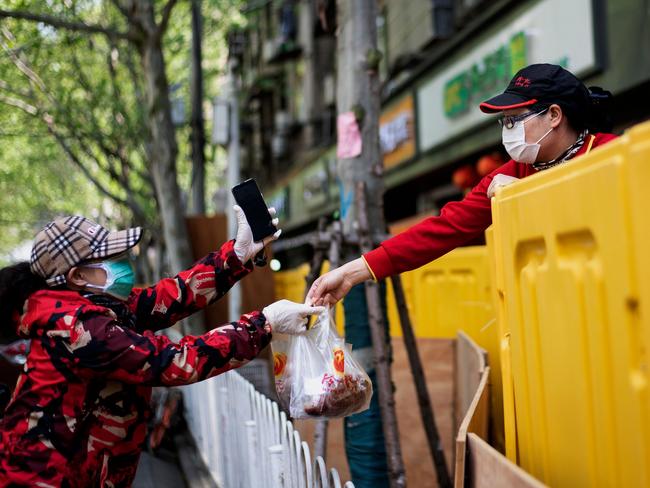
On Tuesday at midnight, 76 days after it became the most infamous city in the world, Wuhan’s long and harrowing coronavirus quarantine will end.
The almost 11 million residents of the capital of Hubei province — which has endured a horror show that two months ago seemed unimaginable outside China but has since raged through Milan, Madrid and now New York — will finally be free to travel outside the city’s limits.
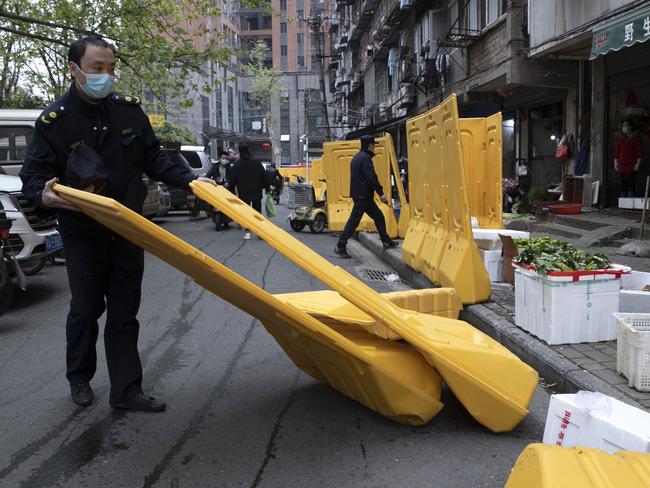
One of those residents is Simon Carter, a geophysicist who lectures at a university in Wuhan, who has been surprised that much of the world was not better prepared since the coronavirus “played out in Wuhan for all to see”.
“The outcome in Wuhan offers us hope that civilisation doesn’t come to an end,” says Carter, who at the end of January wrote his first piece in The Australian about his experience of life at what was then COVID-19’s epicentre.
In the nine weeks since Carter was first cooped up in his 20th-floor apartment with his wife Sunrui and seven-year-old daughter Imogen, more than 69,000 people around the world have been killed by the coronavirus, almost $US5 trillion of market value has been wiped off America’s 500 biggest listed companies and the Morrison government has spent more than $200bn to stop the biggest surge in unemployment since the Great Depression.
The end of Wuhan’s quarantine at midnight in China — one of the most significant decisions of Xi Jinping’s seven-year reign as China’s President — demonstrates the leadership’s confidence that COVID-19 has been restrained within the world’s most populous country.
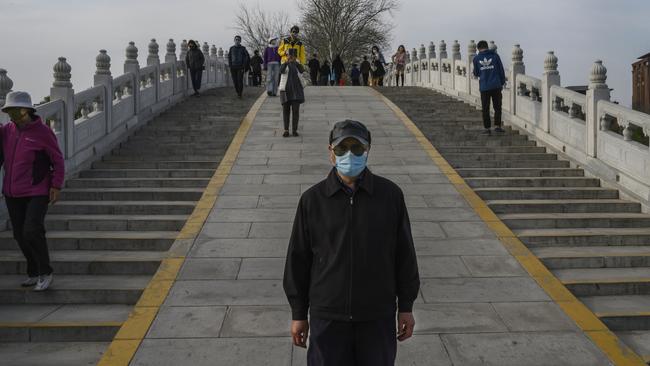
But the global fallout means China is far from done with the coronavirus, which has sharpened the rhetoric of its international political enemies, smashed the economies of its trading partners and spread so widely that China has banned all foreign travellers.
Everywhere in this country there are signs of the tension between rebooting the world’s second-biggest economy while halting the spread of COVID-19.
Diners are once again eating out at restaurants overlooking Shanghai’s Bund, but five new domestic infections found in Guangdong on Saturday worried consumers in the province.
Beijing’s wealthy Sanlitun shopping district is as busy as it has been since the Lunar New Year break, but the managers of China’s factories worry about a drop in international orders.
The tense situation has led some government-linked economists to urge Xi’s central government to abandon an economic growth target this year — something inconceivable even a month ago, and a worrying sign for those businesses in Australia that have been dreaming of a massive stimulus package in their biggest trading partner.
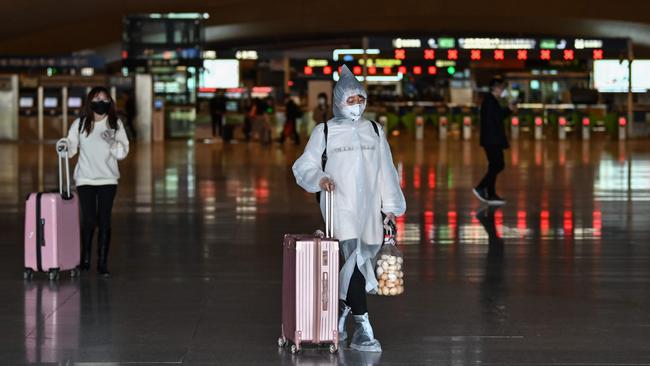
And it has led to a cold reception for many of Hubei’s 60 million residents, who were allowed to leave the province a fortnight ago to return to their jobs around the country. Some were turned away at their destinations, leading to a lashing by the state-controlled media.
“Those who have treated Hubei people with discrimination and bias should feel ashamed,” the China Daily thundered in an editorial.
While there were promising signs of consumption this Tomb Sweeping long weekend, there was a sharp reduction in the holiday’s namesakes cleaning the graves of their ancestors.
Beijing’s Babaoshan People’s Cemetery — which sits near the favourable feng shui of the capital’s western Fragrant Hills — limited its daily numbers to 3000, down from 40,000 in previous years.
Meng Xiankai, the cemetery’s deputy director, said that was because many visitors were elderly and particularly vulnerable to COVID-19, which killed more than 3300 people in China, most of them in Hubei.
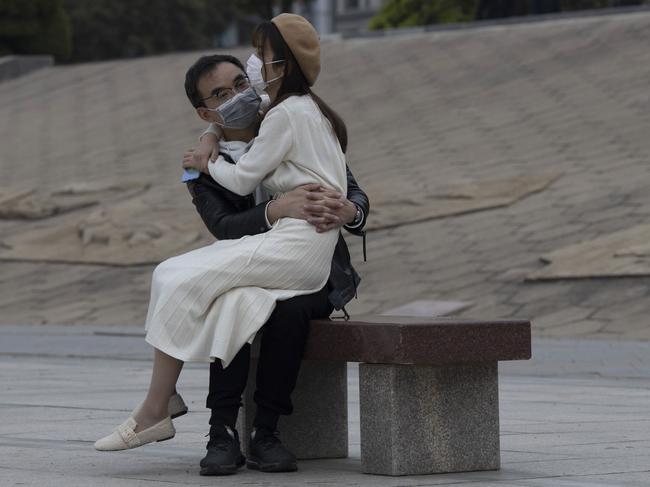
“Very few young people visit the cemetery, and then usually only to accompany their ageing parents,” said Meng.
Attendance was sparse when The Australian visited the neighbouring Babaoshan Revolutionary Cemetery, the resting site for the Chinese Communist Party’s highest- ranking heroes, officials and a few “friends of China”.
There were far fewer visitors than cemetery staff, who wore white protective health suits, goggles and shoe coverings.
Outnumbering everyone were masked police.
At the top of the cemetery, not far from the grave of Bo Yibo, father of Xi’s now imprisoned political rival Bo Xilai, and other patriarchs of China’s most powerful families, the party’s oath was emblazoned on a red and yellow billboard, with a hammer and sickle.
That oath includes a commitment to “strictly abide by the party’s discipline” — a sign that for all the devastation, China’s authoritarian political system looks to still be in good health.


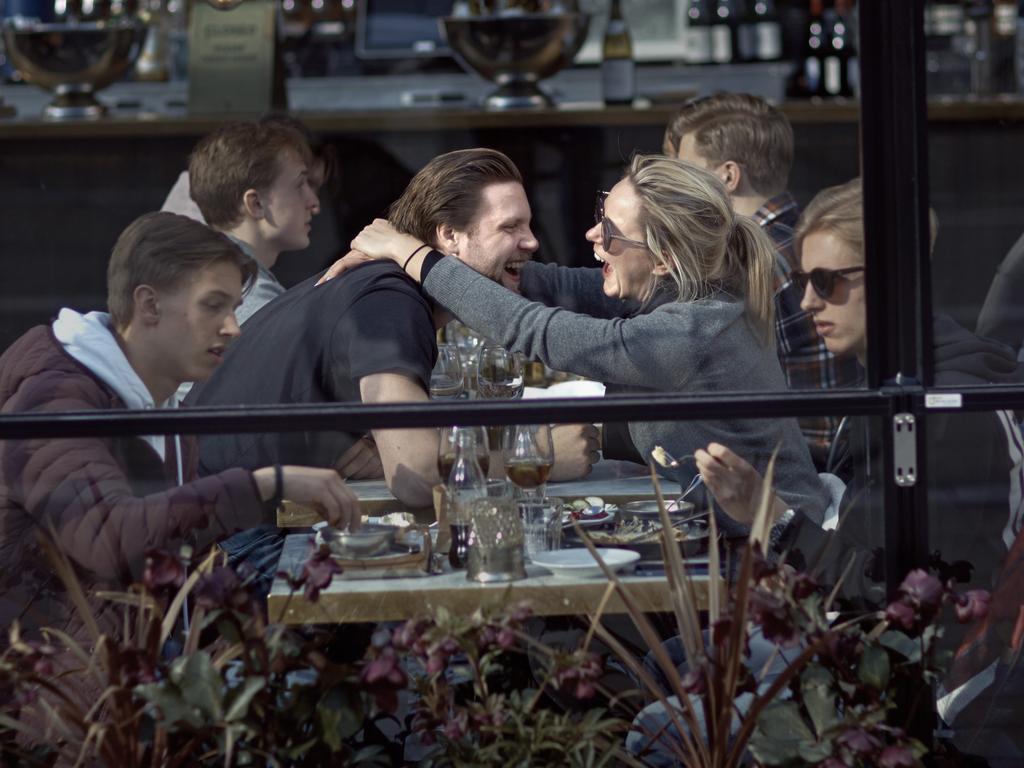
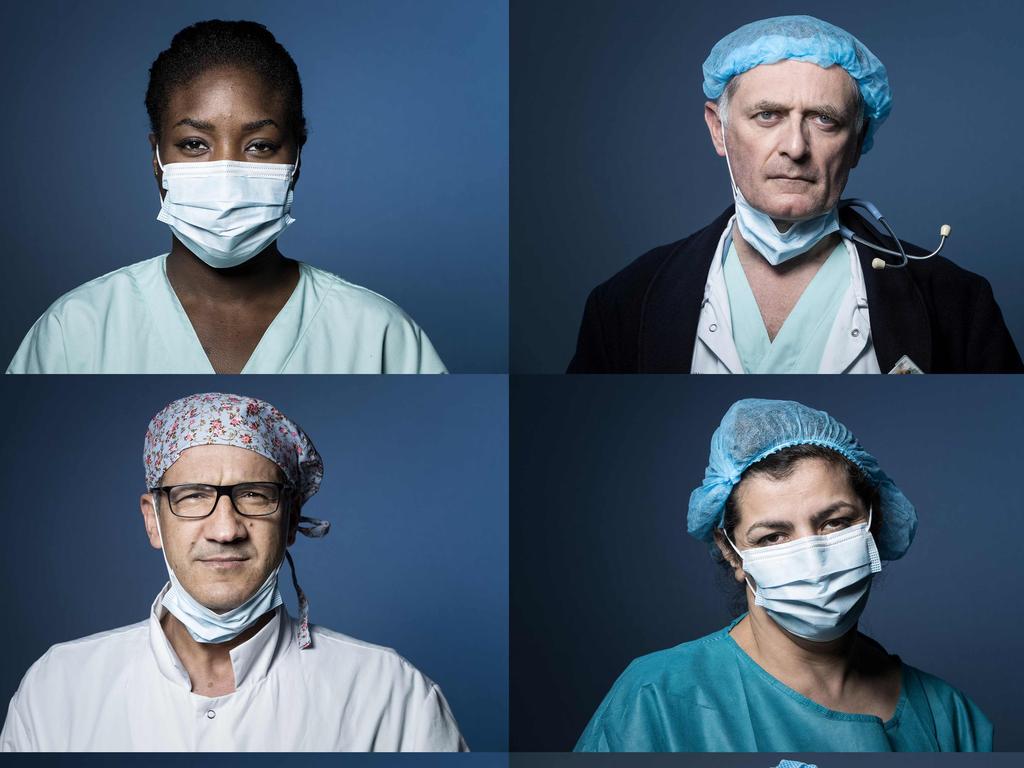
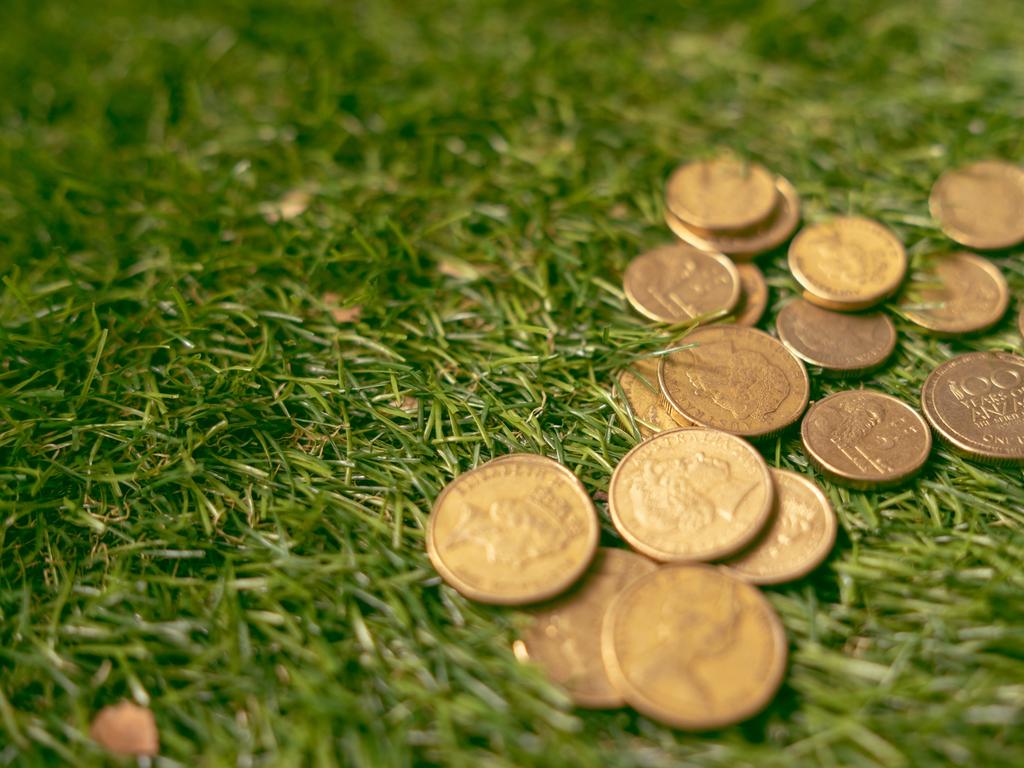

To join the conversation, please log in. Don't have an account? Register
Join the conversation, you are commenting as Logout